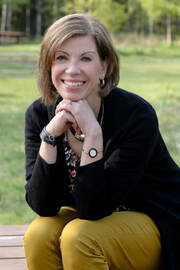
I don’t know if it was my closet or the Roger’s Cup Women’s Final match that first started my mind working. No matter which it was, this idea of spaces has been rolling around in my head.
I’ve been staring at my full closet for some time now. When my friend Sheri Bruneau, of Get It Together, blogged about how rainy days inspire her to clean out her pantry and other small spaces, and when Sunday arrived as a rare rainy Calgary day, and when just the day before I had gone to my closet and could find ‘nothing to wear’ out of the dozens of possibilities, I knew it was time to face the music. Or at least to face the task of acknowledging the reason I had ‘nothing to wear’. I had nothing to wear because I had been persistently hanging on to clothes that no longer serve me well.
I talked Jim into tackling his side of the walk-in at the same time. He humoured me, although I did notice that at the end of it all, he had parted with exactly five shirts while I had filled a black garbage bag to the brim. I had been coerced into this by myself, by promising myself I would only spend thirty minutes on it. If you are a regular reader, you’ll know I’m an overachiever in certain areas, time being one. So, it was an hour later I found myself stuffing the final items into the garbage bag and then walking into the closet feeling like I could breathe again. The space was less full of stuff, and more full of room for me to think.
It’s as though the closet had been filled with indecision and now was filled with possibility. In fact, it had nothing to do with the stuff at all, more with the feeling of the space itself.
My reward for the newly cleaned closet was to watch the Women’s Final of the Roger’s Cup. I had turned the television on when I went to the basement to do my daily stretching and I saw that a young Canadian, Bianca Andreescu, would be playing against the very decorated, very famous, very talented, very strong, tennis icon, Serena Williams. I, like so many other Canadians, was excited to see how the match would play out. It was, of course, an ending that no sports writer could have written in advance.
Only nineteen minutes into the match, before either competitor really settled in, Serena Williams, who later revealed upper back spasms to be the game-ending problem, conceded defeat. She simply did not have it in her to go the distance. The crowd stood in stunned silence. It was as if all the air had been sucked out of Rogers Place. No one quite knew what to do. The space felt like a vacuum.
And then, the nineteen-year-old rising star, took charge. There were so many possible ways she could have handled this situation. After all there was no rule book for this. What she did do was to fill the space with so much grace that all of Canada could share in it.
Bianca Andreescu walked over to her idol, told her she could relate to her injury, told her how much she admired her and told her that she knew Serena would be back and that she was rooting for her. She then cried with her, hugged her and finally returned to her place just off the court where she would wait for the awards presentation.
In that one simple move, in her action of approaching her idol, hugging her and empathizing with her, she filled the space, once full of the uncertainty of thousands of spectators, into a space of grace; a space where everyone was given the opportunity to feel pride instead of deep disappointment. Upon witnessing the composure and class of Bianca Andreescu, the person who must have been most disappointed of all in the game ending this way, the rest of Canada, and many other fans around the world, took their cue and for the most part handled themselves with grace.
It’s amazing how when you make room in a space and deliberately, consciously, purposefully fill it, it doesn’t leave much room for things that don’t serve you quite as well.
Bianca Andreescu filled the huge space of the arena perfectly last Sunday.
Each of us fills spaces when we share company with others. We fill spaces at our work places. We fill places at the dinner table. We fill spaces in conversations. We fill spaces in our communities. We fill spaces in all of our interactions with others. When we choose to allow the spaces to fill themselves with uncertainty and negativism, like my closet had and like the stadium may have before Andreescu took charge, we lose the opportunity to consciously fill it with our best selves.
Every time we take our place with others, we have a chance to fill the space however we choose. I wish I could say I have always chosen to fill the space I occupy with acceptance, wisdom, patience, humour, kindness and grace. I have not. But I have a feeling, after watching the magic on the court last week, I’ll be making more mindful decisions about how I want to fill the spaces in my life.
My inquiry for you this week is, ‘How am I filling this space?’
Elizabeth is a certified, professional Life and Leadership Coach, and the owner of Critchley Coaching. She is the founder and president of the Canadian charity, RDL Building Hope Society. She works with corporations, non-profits and the public sector, providing leadership and personal coaching for individuals and teams. She creates and facilitates custom workshops for all sizes of groups. Contact Elizabeth to learn how to purposefully fill the spaces in your life.


 RSS Feed
RSS Feed